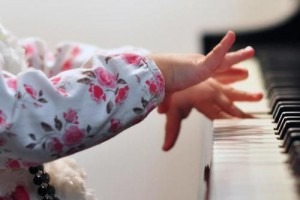
© s-media-cache-ak0.pinimg.com/
“How do I find the right music teacher for my children?” This must be a frequently asked question among concerned parents who want nothing but the best for their children. Their wish-list for the ideal teacher inevitably includes the following – one who is highly qualified but not too demanding, effective but not too strict, disciplined but not too overbearing, caring but not too doting, friendly but serious, gentle but firm. In other words, they want a “Goldilocks” situation – not too hard, not too soft, not too hot, not too cold, but just right!
Since I was recognized as a seasoned and well-respected piano teacher, everyone, including myself, assumed that I had to be the “right” music teacher for our two children. Upon birth, both were introduced to Bach Cello Suites, slow movements of Mozart and Beethoven Symphonies and Sonatas, Chopin Nocturnes, Schumann‘s “Scenes from Childhood” and many other suitably mellow and baby friendly pieces chosen from our vast collection of recordings. Music was played continuously in their rooms, either to lull them to sleep or to infuse their subconscious with great classics, presumably giving them an advantage in life. I even optimistically (and naively) imagined that we would forever enjoy idyllic togetherness – cuddling up, sharing music, attending concerts, collaborating in chamber music, and co-existing in perfect harmony. Our toddlers, barely walking, were already programmed to identify specific composers upon listening to brief excerpts of their works. Naturally, we could not help but show them off to friends, giving us the illusion that we were exemplary parents and they were prodigies!
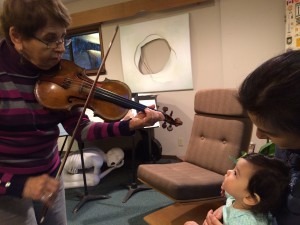
Zoe’s First Concert
The truth was, when it came to teaching my own children, all my professional expertise and objectivity went out the window. I found myself both frustrated and frustrating. Perhaps I was grumpy from being overtired – a result of scheduling their sessions at the end of very long days of teaching, or perhaps, my expectations were set unrealistically high, emotions were in disarray, and constructive comments inevitably perceived as hurtful criticisms. Oftentimes, those lessons ended with both teacher and pupil (mother and child) in tears. I must have agonized over the painful reality that I had failed on both fronts – as a teacher and a mother.
With our son, I managed to teach him for a year, even exposed him to a piano competition experience when he was five years old, with a flashy piece titled “The Juggler”, selected to showcase the pianist’s talent in brilliantly navigating the keyboard from one end to the other, contrasting legato with staccato touch, as well as executing a wide range of dynamics. I was beaming with pride when he made his debut on stage with his brand new haircut, navy blazer, grey trousers and red bow tie. He raced through the piece with accuracy and energy, delivering what I thought was an impressive performance. But alas, he never bothered to sit down on the piano bench the entire time!
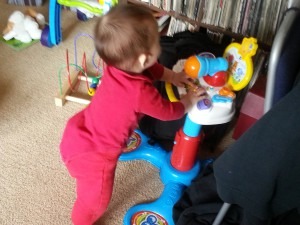
Isobel playing, singing and dancing
The adjudicator was kind to him but unkind to his teacher, insinuating that he was not taught properly the fundamentals of piano playing. In other words, she hinted that he should change teachers! Obviously, as an inexperienced and vulnerable mother, rather than laughing it off as a “cute” incident, I was moping over my “loss of face”. Embarrassed, I promptly switched his instrument to the violin, so he could perform standing up! Fortunately, the violin teacher I found was a “dream come true”. She had studied with the legendary pedagogue Ivan Galamian at Julliard (teacher of many accomplished violinists like Itzhak Perlman) and toured the world with prominent orchestras and chamber music ensembles. Above all, she was warm, generous, dedicated, mindful of her pupils’ best interest and had a tremendous sense of humour. Considering what a terrific choice she was for our son, that piano competition mishap turned out to be a blessing in disguise!
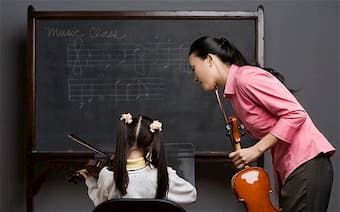
© CMUSE.org
When our daughter was ready for music lessons, I was again put in a dilemma whether to teach her myself or not. I set up a pseudo interview between her and a very sought-after piano teacher at the Vancouver Academy, a prestigious music school that had produced many Curtis and Julliard-bound instrumentalists. The venue was a cafe by the water park on Granville Island, a frequent hang-out of ours, just so that our daughter would be able to play while we adults have lunch, unsuspecting that I was sending her away for lessons. Also, I assumed that I would be able to assess the chemistry between them. After they had some polite social exchanges, I asked our daughter’s opinion of the teacher, and surprisingly, her comment was: “Well, she doesn’t like children… She only likes what they can do, but not them! ” Knowing how devoted that piano teacher was to her career, I was alarmed by our four-year-old’s astute observation. It was true that she boasted incessantly about her students’ achievements and mentioned nothing about them as people. If “caring for her as a person” was a strong pre-requisite, high up on our daughter’s wish-list, clearly the best candidate to undertake the piano teacher role would be me. I made a huge effort to make this work, including equipping her with a Clavinova – electronic piano – so she could practise with earphones everyday in the privacy of her own room, and receive formal lessons on my “real” piano once a week. However, that thoughtful arrangement, as perfect as it seemed, did not eliminate weekly tears from both teacher and student. I was super critical, and she was ultra sensitive. Shortly after, much to my dismay, she announced that she wanted to quit lessons with her piano teacher/mother. Luckily I had a Plan B ready, and immediately referred her to our son’s wonderful teacher for violin lessons. They got along superbly, adored each other, and we all lived happily ever after.
While growing up, both children thrived as violinists, actively participated in a youth orchestra through their teenage years (even became concert masters), and are still in touch with their beloved violin teacher after thirty-plus years. My contribution was dutifully chauffeuring them back and forth to lessons and rehearsals, cheering them on at concerts as a loyal fan, and happily accompanying them on the piano upon request. What rewarding experiences they were!
Educators claim that parents habitually “take too much credit for their children’s success and too much blame for their failures.” Consequently, many seek out reputable teachers or institutions that may raise hopes of transforming their children into winners (as defined by their peers), thus fulfilling their own dreams. Unfortunately, musical achievements are now instrumental in validating parents’ self esteem. We are what our children can produce in accolade terms. Sadly, in some cases, the purpose of music lessons has evolved into a desperate quest for acquiring certificates and awards through examinations and competitions. As insignificant as meritocracy is in the actual music world, they are indeed feathers in parents’ hats offering them immense bragging rights. I have heard many ambitious parents (and brainwashed children) ascertain that such practical pursuits are necessary vehicles to engineer successful resumes for university applications – a deviation from the authenticity of cultural and educational values!
Menahem Pressler’s views on teaching music, 2008
To me, the very essence of music education should be the cultivation of gentility and artistry, stimulation of intellect and aural sensitivity, and emotional connection with great masters through great compositions. At a time when our concert halls need to be filled with enthusiastic audiences, young people need to learn to listen attentively, analytically and critically, musicians and music organizations need generous support, music appreciation (or the art of listening) must be fostered. We need music teachers who will not only develop musicianship and technique, but instill the love of music in their students. We need parents who will seek out music teachers who are passionate about their vocation and who will inspire their children to express competently and creatively. We must ensure that our society is being meaningfully enriched by the power of music.
Recently I became a grandmother to two adorable little granddaughters. In a few years I will be applying for the job as their piano teacher. Hopefully I will have gained enough wisdom to get it “just right” this time around.
For more of the best in classical music, sign up to our E-Newsletter

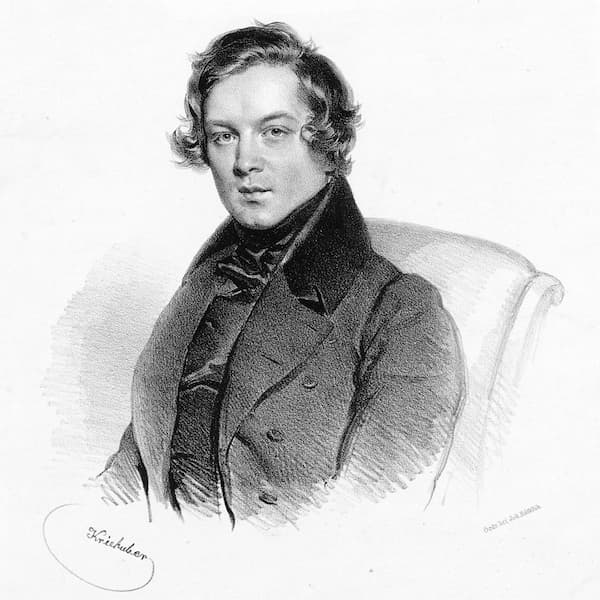
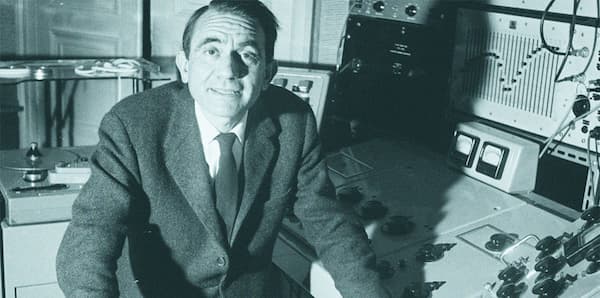
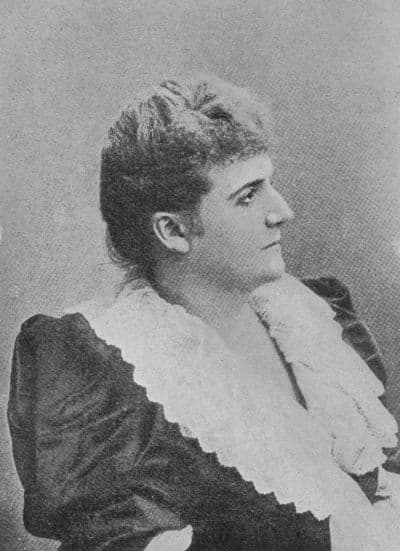
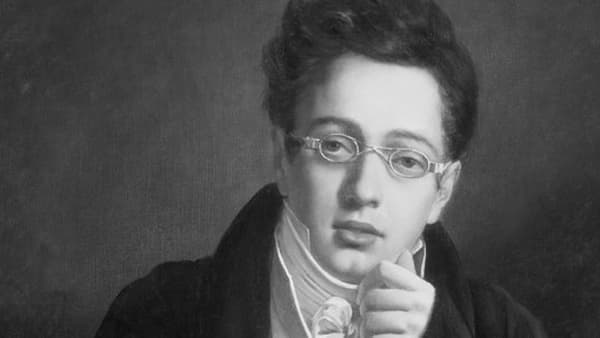
Dear Mrs Ellen Wong Tso,
you may consider yourself to be lucky that your children turned out well with the obviously caring violin teacher. I was shocked to read about putting your son to a competition at an age of 5. It has nothing to do with your nationality or ancestry. Especially in China, even if the Chinese live in USA or Canada, kids are trained at a very young age. This reflects a mirror image of turbo-capitalism, where the only thing that matters is efficiency and earning as much money that you can get. In your article there is a very vital quote: “We need music teachers who will not only develop musicianship and technique, but instill the love of music in their students. ” You may ridicule me, because I am a guy who started only at five and a half. My father who taught me some basics found a music teacher after half a year who was a lady of about 30 years. She followed the educational schedule as it is usual in Vienna. But I did not really catch on.
But at the age of 10 I was permitted in the “music school” and I had a fantastic teacher, pianist and composer and the most friendliest person. He might have like the idea of me becoming a pianist, but at the first piano recital in the conservatory I thought that I will not be good enough. I had a specific sound in my ear and when I tried to play at the Bösendorfer it did not sound as I had expected. There would not have been a difference if I had tried on a Steinway.
I became a technician. Later on I was recommended for my specific sound on the piano. But I cound not practice during my professional career. When I had retired at the age of 65, there developed my plan to perform all Beethoven sonatas in public. (Being an amateur) I have now succeeded with 17 of them, while next year I could not play because of Corona. The same restriction goes for this year. In June 2022 I hope to celebrate a delayed 70th birthday anniversary with opus 57, 101 and 110.
I grant myself another 9 years to fill up until the age of 80.
Coming back to the original topic: by accident I found a piano teacher who is ideal for me. She is a pianist and composer and finds the right words to correct me or to boost me. But she was “found” by me, not searched.
Now I am her student and I have increased in my musical understanding tremendously during the last two and a half years.
Since you are a musician by yourself it should be easy to find out the right teacher by listening to some of her students or children. If the children are playing like performing a competition, especially at an age less than 8 years, I personally would not choose that teacher.
I appreciate however your primary approach of exposing your children to all kind of different music and styles.
Therefore your whole article could be justified by enhancing the title of the story. Like Personal Experience: how I found …